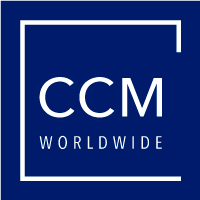Strategic Environmental Assessment (SEA) of Oil Exploration/Exploitation in the North Albertine Rift (North Kivu and Orientale Provinces) Phase 1: Scoping Study
Full description of the project
SEA, therefore, serves to set the background and conceptual, legislative, regulatory, biological, ethnological, sociological, etc. frameworks on which any project-specific Environmental Impact Assessment (EIA) can be conducted. SEA should not be confused with an EIA, which is carried out for a specific project, over a smaller area, and in greater detail. SEA does not replace EIA. It precedes it. SEA and EIA, therefore, take place on different temporal and spatial scales.
The Strategic Environmental Assessment (SEA) procedure has two phases :
a scoping study and the SEA itself.
This project concerns the scoping study which aims to :
- Describe the institutional and legal contexts that govern petroleum exploration/exploitation in the DRC as well as those that ensure an environment capable of guaranteeing the sustainable development of the populations of the Rift region,
- Clearly define the geographic, physical, biological, and human setting of the SEA,
- List the sources and receptors of impacts and the methods and means to study them during the SEA,
- Collect the data, or sources of data, to be analyzed and compared in the cost/benefit or cost-effectiveness analyses10 of SEA alternatives and variants,
- Define the issues to be addressed in the SEA, considering the specific context in which the program/policy is being prepared and is likely to be implemented.
Pays
Bénéficiaire
Government of the Democratic Republic of Congo
Organisme de financement
European Union (EU)
Full description of the project
SEA, therefore, serves to set the background and conceptual, legislative, regulatory, biological, ethnological, sociological, etc. frameworks on which any project-specific Environmental Impact Assessment (EIA) can be conducted. SEA should not be confused with an EIA, which is carried out for a specific project, over a smaller area, and in greater detail. SEA does not replace EIA. It precedes it. SEA and EIA, therefore, take place on different temporal and spatial scales.
The Strategic Environmental Assessment (SEA) procedure has two phases :
a scoping study and the SEA itself.
This project concerns the scoping study which aims to :
- Describe the institutional and legal contexts that govern petroleum exploration/exploitation in the DRC as well as those that ensure an environment capable of guaranteeing the sustainable development of the populations of the Rift region,
- Clearly define the geographic, physical, biological, and human setting of the SEA,
- List the sources and receptors of impacts and the methods and means to study them during the SEA,
- Collect the data, or sources of data, to be analyzed and compared in the cost/benefit or cost-effectiveness analyses10 of SEA alternatives and variants,
- Define the issues to be addressed in the SEA, considering the specific context in which the program/policy is being prepared and is likely to be implemented.
Country
Recipient
Government of the Democratic Republic of Congo
Funding organization
European Union (EU)


